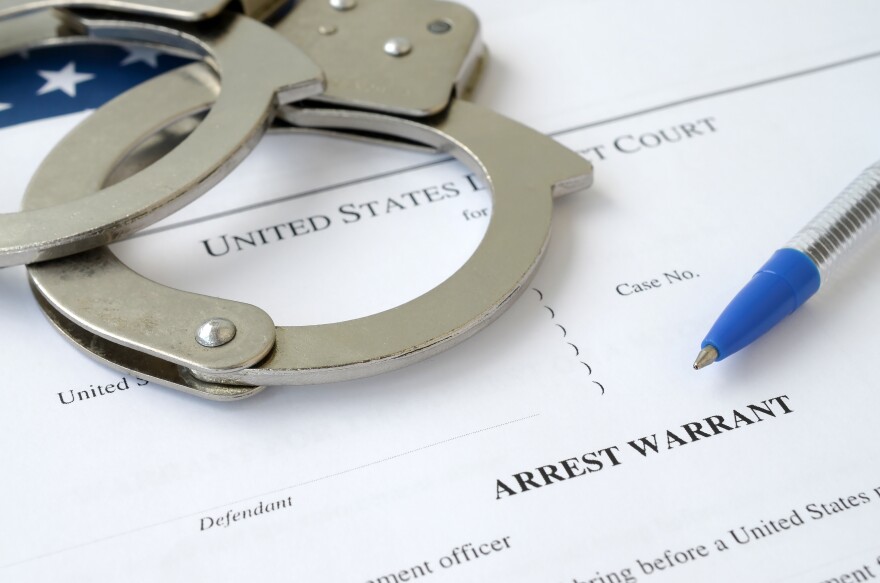The story of Breonna Taylor, a Kentucky woman who was shot and killed by police in her home last year, galvanized the nation and brought one particular law enforcement practice — the use of no-knock warrants — under scrutiny. No-knock warrants authorize police officers to enter a home without first knocking and announcing their presence.
For state Rep. LaKeshia Myers (D-Milwaukee), the first time she heard about no-knock warrants was in the wake of Taylor’s death.
“I was really caught and impacted by the death of Breonna Taylor. I think when you look at the way in which she was killed that made a big difference in understanding what actual no-knock warrants were,” she says.
>> WUWM Series — Policing In Wisconsin: Has Anything Changed Since Last Summer's Protests?
Myers looked into the history of no-knock warrants and learned that they were implemented under the Reagan administration as part of the 1980s war on drugs.
“If you think about old videos from the news, I remember seeing LAPD and Nancy Reagan, you know, kind of riding, you know, on a battering ram, which was like a little tank and, you know, smashing into two suspected drug houses, all of this type of activity,” she recalls.
Today, critics say that the use of no-knock warrants is both dangerous to civilians like Breonna Taylor but also to law enforcement officers who serve the warrants. In 2019, 35-year-old Milwaukee police officer Mathew Rittner was shot and killed while executing a no-knock warrant.
Proponents of the tactic say it creates a necessary element of surprise to confiscate contraband. But it’s difficult to fully understand the impact of no-knock warrants because different jurisdictions collect different data and some collect none at all. When asked how many times police officers or civilians have been killed during the execution of a no-knock warrant, Milwaukee Police Department Acting Chief Jeffrey Norman was unable to answer the question.
“I have no immediate numbers of anything, if they even have a situation like that. I'm not aware of a situation in my current memory, but definitely something that can be followed up a little bit later,” Norman told WUWM.
Listen: What Has & Hasn't Changed: A Conversation With Acting Milwaukee Police Chief Jeff Norman
Last week, a Wisconsin task force on racial disparities introduced a bipartisan bill that would require data collection on no-knock warrants. Under the proposal, the Department of Justice (DOJ) would have to collect information from law enforcement agencies across the state and prepare an annual report on the use of no-knock warrants. The proposal drew support from key police unions including the Wisconsin Professional Police Association (WPPA).
“I think that collecting that data would serve as a better guide for prospective public policy changes,” says WPPA Executive Director Jim Palmer.
But not every member of the task force is on the same page when it comes to collecting data on no-knock warrants. Rebecca Burrell, a Madison-based activist, says the measure is a waste of time.
“We didn't come asking for what you thought was best for us. We came tell you what would be best for our community based on experience. Data collection that should already have been collected did no justice for my community, and it is a slap in my face,” she says.
Rep. Myers also has concerns. While she says the measure to collect data is a step in the right direction, it does nothing to actually curb the use of no-knock warrants. Her bill, the Breonna Taylor bill, would actually do that.
“It would restrict the use of no-knock warrants from the hours of 10 p.m. to 6 a.m. And it would also, you know, … allow for police to say, 'Look, this is an extreme circumstance, we have to do it after 10 p.m.,' and this is the reason you have to lay out, you know, an extreme reason to have that happen,” she says.
While Myers is skeptical the Breonna Taylor bill will go anywhere, she says she’s not throwing in the towel. The fate of the legislation lies with Republican Rep. John Spiros, who is the chair of the Justice and Public Safety Assembly Committee.
“I'm in for the long haul. It most definitely would depend on when, if we get a committee hearing. I'm not certain that we will given that we have 329 that came from the task force. But if we don't have a hearing this session, will reintroduce the next session,” she says.
The bill mandating the DOJ to collect this data was passed by the Public Safety Assembly Committee Wednesday, and will head to the Assembly floor. The Breonna Taylor bill is on standby. As for outright banning no-knock warrants, there’s no proposal at the state level that would do just that.






